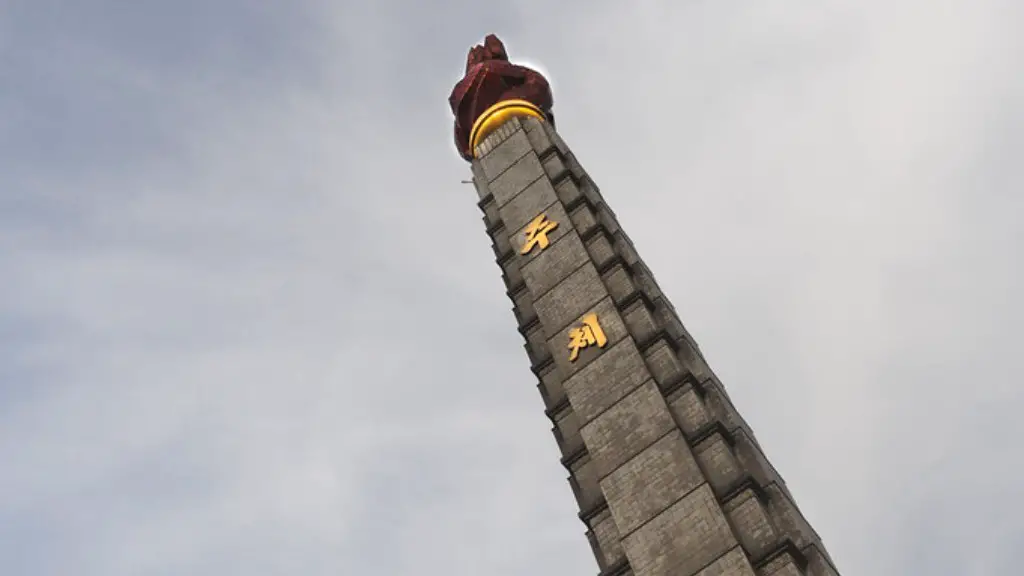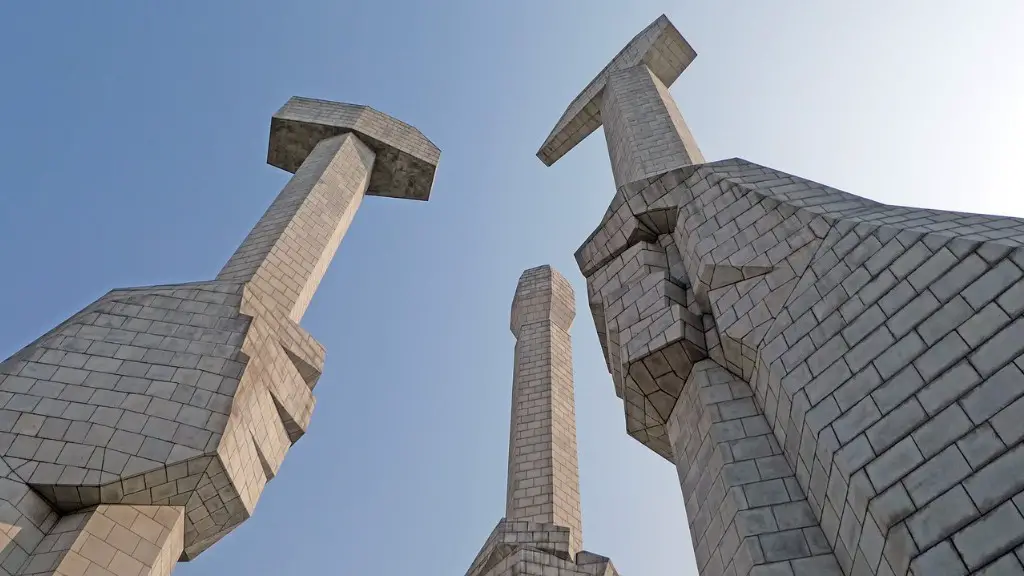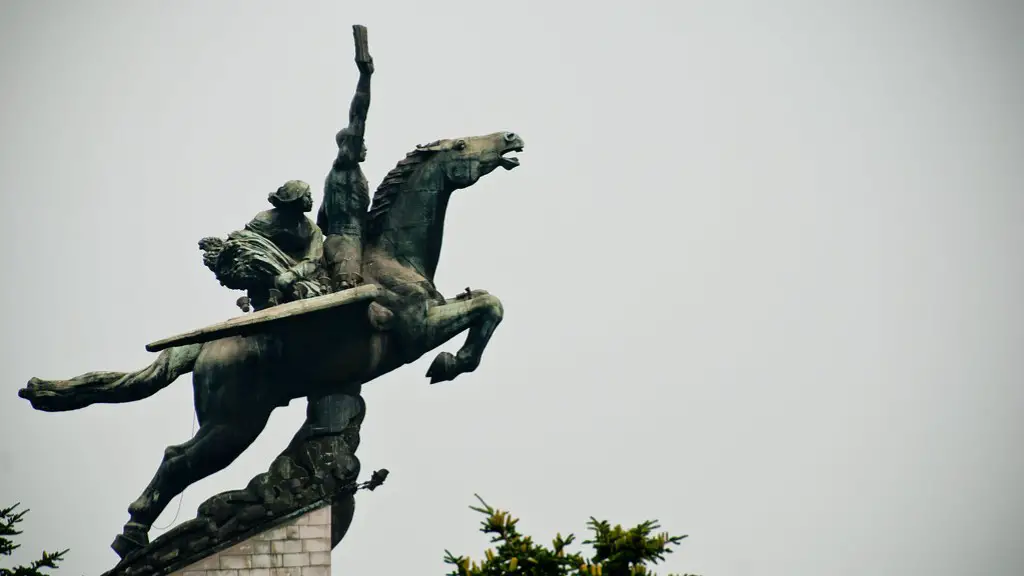Background Information
North Korea, officially the Democratic People’s Republic of Korea, is a sovereign state in East Asia, located on the northern half of the Korean Peninsula. It has been ruled since its founding in 1948 by the ruling Workers’ Party of Korea. North Korea is known for its isolationist policies, its brutally repressive government, and its nuclear weapons program. It has long been a source of international tension, owing to its nuclear ambitions and its belligerent attitude towards its neighbors, South Korea and Japan.
Relevant Data
At present, North Korea is estimated to have between 15 and 60 nuclear weapons. It also possesses chemical and biological weapons, as well as a large military, making it one of the most heavily militarized countries in the world. Its economy is heavily regulated, and its population is largely impoverished. Human rights violations, including imprisonment, torture, and executions, are endemic in North Korea.
Expert Perspectives
The question of why North Korea has not been liberated is a complex one. Most experts agree that there is no simple answer, but instead cite a combination of factors. Chief among these is the power and influence of the ruling Workers’ Party of Korea, which is thought to be intent on maintaining its grip on power no matter the cost. The Party has created a network of control over the population and isolation from the outside world, creating an atmosphere of fear and paranoia.
The Kim dynasty, which has been in power since the state’s founding in 1948, has long been a source of strength for the ruling Party. The current leader, Kim Jong-un, has continued this tradition, with his grip on the population only tightening since he took power in 2011. He has been ruthless in his suppression of dissent, with critics and anyone suspected of speaking out facing arbitrary imprisonment, torture, and often execution.
The international community, meanwhile, has been cautious in its dealings with North Korea. While it has spoken out against the regime’s human rights violations and nuclear ambitions, it has stopped short of taking military action. Some argue that the cost of a war, in terms of lives lost and infrastructure destroyed, is simply too high, and so a diplomatic solution is the preferable option.
Political Motivations
A long-term political solution to the North Korea problem is no doubt complicated, not least because of the vested interests of key players, notably China and the United States. China, which shares a long border with North Korea and is a major supplier of aid, is thought to be using its influence to ensure the North Korean state does not collapse, as it fears the potential unrest that could result. For its part, the United States has long sought to limit North Korea’s nuclear capabilities and continues to take a hard-line stance against the regime, though it is also aware of the need to maintain peace on the Korean Peninsula.
Human Rights Considerations
In addition to the political and economic considerations, there is the question of human rights. North Korea has been the focus of mounting condemnation in recent years, with the United Nations repeatedly decrying its appalling human rights record. But the UN has been hamstrung by an inability to act, due to the lack of consensus within the Security Council. This is exacerbated by the fact that China, an ally of North Korea, has veto power over any UN resolution.
Economic Impacts
The economic ramifications of North Korea’s continued isolation should also not be underestimated. While some argue that the North Korean economy has been made stronger in the face of sanctions, most experts agree that the country is in a state of crisis. Hunger and poverty plague the population, exacerbated by a poor infrastructure, government mismanagement, and a lack of access to outside assistance.
Social Challenges
The social implications of North Korea’s continued isolation are significant also. Not only is there a lack of access to information, but there is also a lack of meaningful contact with the outside world. This has led to a deep-rooted xenophobia and mistrust of outsiders, while the lack of freedom of speech and thought has stunted the personal and professional growth of the population.
International Support Mechanisms
While there are no clear-cut solutions to the North Korea problem, there is recognition among the international community of the need for greater support for the North Korean people. This could take various forms, from easing sanctions and providing humanitarian aid, to allowing greater access to outside news and information. However, while such measures could bring immediate relief, they will do little to address the root causes of the North Korea crisis without significant political pressure to reform the regime.
Role of the People
The role of the North Korean people themselves should not be overlooked. Although largely held in check by the authorities, there have been reports of small acts of resistance and protests against the regime. To liberate North Korea, though, will require a far greater commitment from the population at large. The North Korean people must be prepared to stand up to the regime and demand change, even if it means taking risks.
Educational Opportunities
One way to achieve this is to empower the North Korean people through greater educational opportunities. Currently, the majority of the population is denied access to a proper education, with many unable to attend school due to lack of resources, while those that can are often taught propaganda and forced to conform. To liberate North Korea will require a new generation of thinkers who are equipped with the knowledge, skills, and ability to lead the country to a better future.
A New Political System
Such an effort will need to be complemented with a new political system. It is widely acknowledged that North Korea’s current government is unsustainable in its current form, but the question of what a post-liberated North Korea would look like remains unanswered. A new, more open and democratic system must be thoughtfully crafted in order to ensure that the country’s new leaders are truly representative of the people and accountable to them.
Societal Shift
Finally, any liberation of North Korea must account for the impact of decades of indoctrination and repression. The population has been conditioned to accept the status quo, and breaking free of that will inevitably require a major societal shift. In order for North Korea to be liberated, its people must first reclaim their sense of self and independence, rejecting the oppressive systems which have been imposed on them for far too long.



